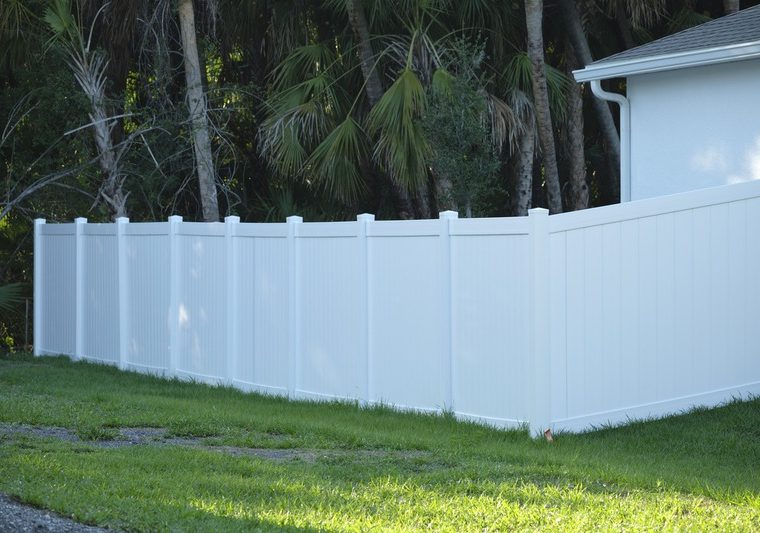Are you planning to install a pool in your backyard? You may already have one and are considering adding a fence around it. Pool fencing is not just a nice-to-have but, in many places, a legal requirement. The fence not only enhances the safety of your pool area but can also add to the overall look and function of your outdoor space. This article explores the key considerations—safety, aesthetics, and functionality—when choosing the right pool fence for your home.
What Are the Essential Considerations?
When it comes to pool fencing, you need to think about several key factors:
-
Safety
-
Aesthetics
-
Functionality
Safety First
Safety is the most important reason to install a pool fence. It provides a barrier that helps prevent accidental drownings, especially among children and pets. Here are some essential safety tips:
-
Height requirements: Most local laws specify a minimum height for pool fences, typically around four feet. Make sure to check your local regulations.
-
Self-closing gates: Your pool gate should be self-closing and self-latching to prevent accidental opening.
-
Non-climbable design: The fence should be made of materials that are difficult to climb. Vertical bars should be close enough together to prevent children from squeezing through.
-
No gaps: Ensure no gaps at the bottom or sides that a small child or pet could slip through.
Aesthetics Matter
A pool fence doesn’t have to be an eyesore. The right fence can enhance the beauty of your pool area. When considering aesthetics, think about these factors:
-
Materials: Common materials include wood, metal, glass, and vinyl. Each has its own look and feel.
-
Color and finish: Choose a color and finish that matches or complements your existing decor. For instance, a sleek black metal fence might look great next to a modern pool, while a wooden fence could blend better with a rustic setting.
-
Customization options: Many providers offer custom designs. If you’re going for a custom patio design Euless, you should work with a specialist to create something unique.
-
Landscaping: Remember the greenery. Strategically placed plants can soften a fence’s hard lines and blend seamlessly into your outdoor space.
Functionality
While safety and aesthetics are crucial, functionality should be taken into account. Your pool fence should be easy to use and maintain. Here are some practical aspects to consider:
-
Ease of use: Look for a gate that’s easy to open and close, even when your hands are full.
-
Durability: Choose materials that can withstand the elements and are easy to clean. Vinyl fences, for example, are resistant to rust and corrosion.
-
Visibility: If you want to monitor the pool from your home, consider a transparent glass or acrylic fence.
-
Multi-functional: Some fences can double as windbreaks or privacy screens. This can be particularly useful if you often entertain guests and want more versatility from your pool area.
Additional Tips
Legal Requirements
Before installing a pool fence, check your local regulations. Many areas have specific laws regarding pool fencing, including height requirements and materials allowed. Complying with these laws is essential to avoid fines and ensure the maximum safety of your pool.
Budget Considerations
Pool fences can range from budget-friendly to high-end custom designs. Determine how much you’re willing to spend and what features are most important to you. While going for the cheapest option is tempting, investing in a good-quality fence can save you money on repairs and replacements in the long run.
Professional Installation
While DIY pool fence kits are available, hiring a professional is often better. Professional installers have the experience to ensure the fence is installed correctly and meets all safety standards. Plus, they can get the job done quicker and less hassle-free.
Integration with Patio Design
If planning a patio design Crowley, consider how your pool fence will fit into the overall layout. A well-integrated fence can enhance the look and utility of your outdoor space. Consider working with a designer who can help you create a cohesive plan that includes the patio and the pool fence.
Types of Pool Fences
There are several types of pool fences to choose from, each with its pros and cons:
-
Wooden fences: These can be customized to any design and offer a natural look. However, they require regular maintenance to prevent rot and insect damage.
-
Metal fences: Usually made of aluminum or wrought iron, these are durable and can be styled to look sleek, modern, or ornate. They can be more expensive and may require periodic painting to prevent rust.
-
Glass fences: These offer an unobstructed view of the pool and a contemporary look. They are usually more expensive and need regular cleaning to stay clear.
-
Vinyl fences: These are low-maintenance and come in various styles and colors. They are generally affordable but may not offer the same aesthetic appeal as wood or metal.
Maintenance Tips
Once your pool fence is installed, keep it in good shape by following these maintenance tips:
-
Clean the fence regularly to remove dirt and algae. This is especially important for glass and metal fences.
-
Periodically check for any signs of wear and tear, such as loose screws or rust.
-
Trim back any nearby plants or trees that could damage the fence or provide a climbing aid for children.
If you’re ready for a pool fence installation, research your options and consult with professionals to find the best solution.
Final Thoughts
Choosing the right pool fence involves balancing safety, aesthetics, and functionality. A well-chosen fence can provide a safe environment, enhance the look of your outdoor space, and offer excellent functionality for years to come. For the best results, make sure to comply with local regulations, invest in quality materials, and consider professional installation.




